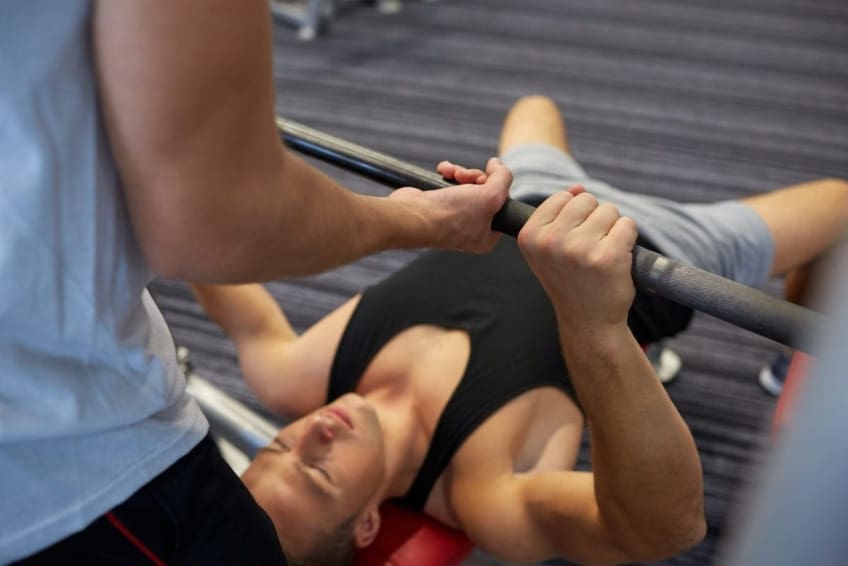
Whether you lift weights for general fitness, to train for sports, or for competition, safety comes first. Lifting weights the wrong way can cause serious injury or even death. Follow these basic guidelines to lift weights safely.
Path to improved health
Form is a critical part of lifting weights. Your goal should be to lift the appropriate amount of weight using perfect form. Lifting more than you can handle using bad form can cause injuries.
Find an instructor
An instructor can teach you how to exercise correctly. Good technique is one of the most important ways to avoid injury. A high school coach or athletic trainer can help you. If a college is located in your town, the weight coach for the varsity athletic teams may be able to give you advice. If not, they may be able to recommend another instructor. The National Strength and Conditioning Association also may be able to recommend a qualified coach in your area.
Avoid taking advice from people who have never learned good technique themselves, such as parents, friends, unqualified coaches, or other weightlifters. Books can help, but nothing beats personal coaching.
Set goals
With your teacher’s help, decide on the goals of your weight-training program. The goals of your training program will depend on your age, physical maturity, and the reason you are lifting weights. Consider which exercises you will use, how often you will do each exercise, what weight you will start with, and when you will increase this weight.
Wait until you’re ready
Most people should wait until they are at least 15 years old before trying major lifts. At age 15, most people’s bodies are mature enough for these exercises. Major lifts, performed with barbells, include the clean and jerk, power clean, snatch, squat, dead lift, and the bench (incline and overhead presses). These exercises are likely to cause injury or serious harm if you lift heavy weights without proper technique and the help of spotters.
Warm up and cool down
Warm up and cool down for each session. Your warm-up session before lifting weights should include stretching exercises, calisthenics (bodyweight exercises), and jogging. When you begin each lifting exercise, use small amounts of weight at first and then progress to heavier weights. Stretching is also important during your cool down.
DOs
- Do use spotters when you try the major lifts.
- Do keep your back straight when lifting.
- Do use proper lifting technique when moving weights around the room.
- Do wear shoes with good traction.
- Do make sure the equipment you use is in good condition.
DON’Ts
- Don’t hyperventilate (breathe in and out fast) or hold your breath when you lift heavy weights. You may faint and lose control of the weights. Breathe out when you lift.
- Don’t continue lifting if you feel pain. Stop the painful exercise for a few days or try it with less weight.
- Don’t exercise any set of muscles more than 3 times a week.
- Don’t “cheat” on your technique to lift heavier weights than you can handle.
- Don’t lift heavy weights without spotters.
- Don’t lift more than you know you can lift safely.
Things to consider
As with any exercise or fitness program, you should begin slowly. Over time, you can better predict what you can do without putting your body in danger.
Lifting weights that are too heavy can cause muscle and joint damage. Doing so can also cause spinal injuries such as herniated discs. In extreme cases, heavy lifting can even tear a heart artery, which could result in death.
The National Academy of Sports Medicine recommends that during lightweight muscle training, you rest muscle groups for 24 hours before working them again. Experienced lifters who use more weight should rest muscle groups for a longer time (48 hours or more to fully recover).
When to see a doctor
Some injuries are more obvious than others. You should always see your doctor if you suspect that you are injured. If you have an aching joint or sore muscle that is not recovering, you should see your doctor. If you hurt your back while lifting or have neck pain, you should see your doctor. If you think you may have a hernia (painful bulge in your abdomen), see your doctor.
Questions for your doctor
- Which weight training/lifting exercise is best for me?
- Can lifting weights be harmful?
- Am I healthy enough to begin a weight-training or weightlifting program?
- Am I on any medication that could affect my performance?
- Should I lift weights if I have high blood pressure?
![]()
Copyright © American Academy of Family Physicians
This information provides a general overview and may not apply to everyone. Talk to your family doctor to find out if this information applies to you and to get more information on this subject.







